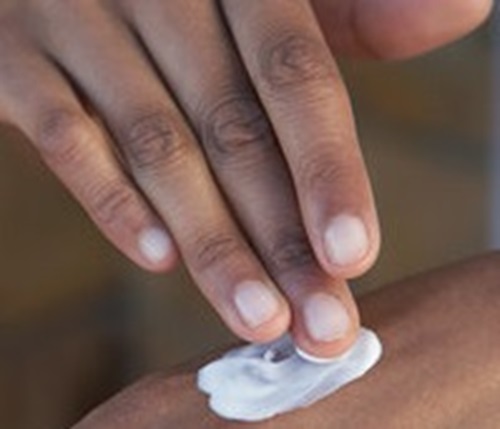Minister of State for Health and Social Welfare, Dr. Iziaq Salako, has called for urgent action to tackle the alarming prevalence of skin bleaching in Nigeria and across Africa.
The minister made the call at the high-level segment of the Regional Awareness-Raising Workshop on the Elimination of Skin-Lightening Cosmetic Products Containing Mercury, held in Libreville, Gabon.
He highlighted the public health and societal implications of the widespread use of hazardous skin-lightening products.
Describing skin bleaching as a “public health problem requiring urgent action,” Dr Salako underscored its widespread prevalence, particularly among women, and the harmful health consequences associated with these products.
According to the World Health Organisation (WHO), 77 per cent of Nigerian women use skin-lightening products, making the country the highest consumer globally.
Dr. Salako attributed this troubling statistic to societal pressures that link lighter skin tones to beauty, success, and social mobility.
“The phenomenon of skin bleaching is deeply rooted in societal norms and colonial influences that promote lighter skin as a standard of beauty. While women are often the primary users, men also play a significant role in perpetuating this trend by exerting direct or indirect pressure on women to lighten their skin,” Dr. Salako said.
The minister noted that skin-lightening products often contain hazardous substances, including mercury, hydroquinone, and heavy metals like lead and arsenic, which pose significant health risks, including skin damage, organ toxicity, cancer, and psychological disturbances.
He cited studies indicating widespread awareness of these risks among users, particularly among university students, but said societal pressures and misconceptions about “toning” as a safer alternative continue to drive the practice.
Despite the ban on mercury-containing products in Nigeria, Dr. Salako acknowledged that smuggling, online sales, and weak enforcement remain significant challenges. He called for enhanced collaboration among African nations to address these issues and promote safer alternatives.
However, Dr. Salako noted that the federal government has taken steps to address the issue through public sensitisation campaigns, regulatory enforcement, and the development of safety policies.
According to him, key initiatives include the 2019 cosmetic products (prohibition of bleaching agents) regulations, which ban harmful substances like mercury and limit hydroquinone concentrations to 2 per cent.
Also, he said the government, through the National Agency for Food and Drug Administration and Control (NAFDAC), has been actively seizing and destroying unregistered and counterfeit products while conducting market surveillance to remove hazardous products from circulation.
Dr. Salako reaffirmed Nigeria’s commitment to protecting public health and promoting safe cosmetic practices through policy development, advocacy, and stricter regulatory enforcement. “Fairer is not better,” he said. “We must celebrate our diversity and redefine beauty standards to reflect our true identities.”
This workshop in Gabon, attended by representatives from across the African continent, marks a significant step forward in regional efforts to eliminate hazardous skin-lightening products and address the cultural and societal factors driving their use.
To bolster these efforts, Dr. Salako announced the impending launch of a National Policy on Cosmetics, which will set comprehensive safety standards for cosmetic products in Nigeria, adding that the government was also developing guidelines for cosmetic safety assessment to align with international standards.
The minister emphasised the need for a multidisciplinary approach to combat skin bleaching, involving dermatologists, behavioral psychologists, and community health specialists.
He urged African governments to revive cultural movements like “Black is Beautiful” to promote Afrocentric beauty standards and counteract the negative legacy of colonialism.
